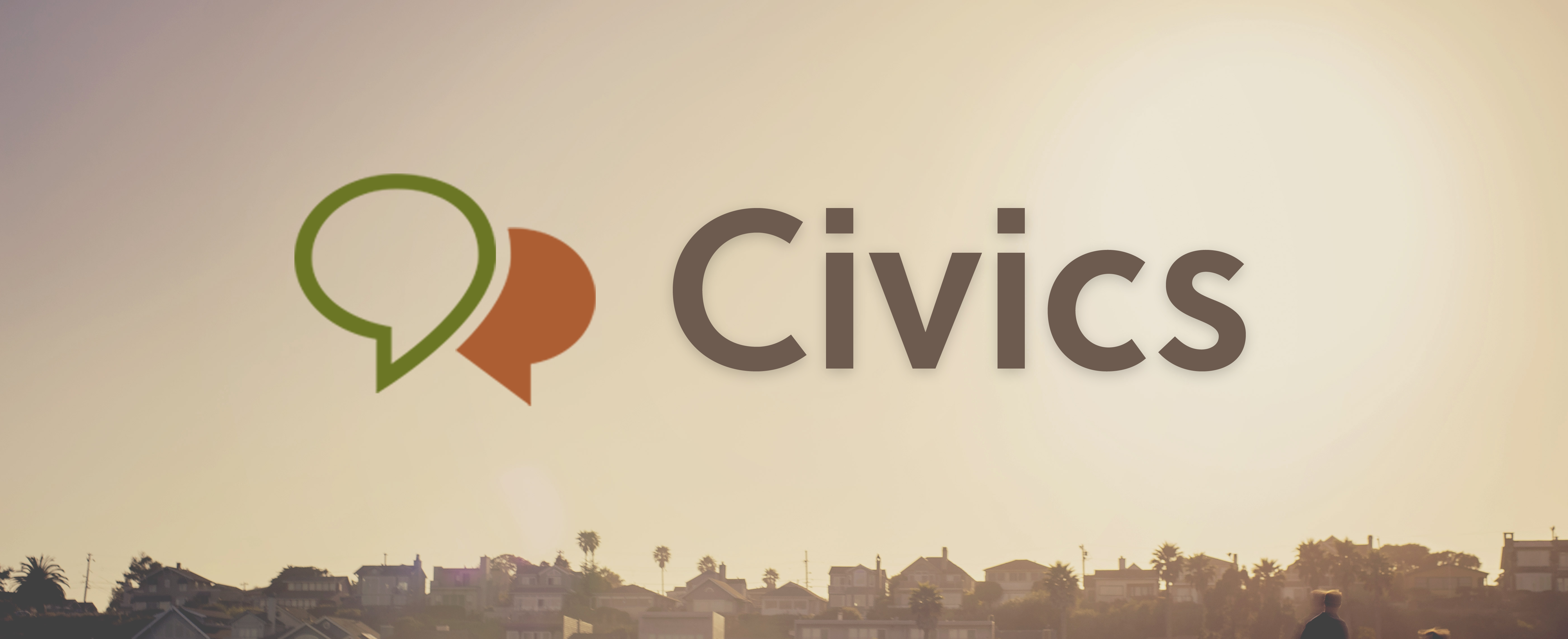"Civics" guidelines, for students

The Project for Better Journalism is excited to work with your school to present our spring collaboration project: “Civics”! Have you ever wondered about the specific issues that affect your community? What do your fellow community members think about the steps that can be taken? And what role can you and your classmates play in exposing and addressing these issues?
In this assignment, you will have the opportunity to express your perspective on a particular issue that impacts your community. Your work will be published and displayed alongside the work of other students all across the country—and many of them will have very different responses that reflect the unique civic issues affecting their own communities! You’ll be able to view them on an interactive website.
Here are some questions that you might consider in choosing an issue: What local issues are you particularly passionate about? Have any recent policy changes affected your day-to-day life? For example, is your local government responsive to its constituents’ needs? Is your school making changes to policies? Is there legislation being discussed or implemented by your city council?
Guidelines
You should first identify an issue in your community.
- Be specific. You should be able to write at least 650 words on the topic: raising the issue, painting the background, introducing key players and organizations, and then explaining steps, if any, that have already being taken to address the issue.
- Think about how one might define “community”. Your community may be your classroom, your school, your neighborhood, or even your entire city!
Some examples of issues might include:
- A law recently passed by your city council that might impact citizens.
- The closing of a prominent local business, perhaps to a displacing force.
- An event that will draw a lot of people, but which might be controversial.
- The actions of your school student council, or a new policy by the school administration.
- There should be enough information that you can conduct a proper investigation. You should be able to find at least one person who is passionate and/or involved.
- Your issue may be controversial. Try to see as many sides of the issue as you can.
You should interview someone who is close to the issue.
- This person can be anyone in your community--for example, a local leader, business owner, or teacher. Try not to choose someone with whom you are very close, like a family member or best friend.
- If you can, record the interview so you can reference it later on. Don’t forget to ask the person before recording. You should also take notes during the interview.
- Before you start, you should explain to the interviewee the nature and subject of your interview, and tell the interviewee that the article will be displayed online.
- To ensure accuracy, try to give yourself enough time to run the transcript of the interview by the interviewee before submitting your final project. Make sure you keep his or her contact information in order to do this.
- PBJ has created detailed guidelines which may help you through the interview process. You can think of the interview as a three-part process: before, during, and after. You should prepare thoroughly for your interview. They can be found at the end of these guidelines.
- You may want to interview more than one person about the issue in order to represent more than one perspective. If so, budget more time and take care to coordinate in advance.
For this assignment, you can submit an article, video, or podcast.
- If you choose to submit an article, it should be at least 650 words in length. We encourage you to include photographs of your interview subject and other locations, buildings, scenes, etc. which may be relevant.
- The article can be submitted as an op-ed or an investigative article. Do not simply transcribe your interview. It should be incorporated into a substantive writing piece.
- If you write an op-ed, you should offer your own solution to the issue as well. You should present a counterargument in order to strengthen your own argument.
- If you write an investigative article, you should not take sides and instead remain as objective as possible.
- If you choose to submit a video or podcast, it should be at least 2 minutes in length.
- iMovie or Windows Movie Maker may be a helpful tool if you choose to create a video.
- Take care during the recording that background noise is kept to a minimum and that the interview is clearly audible.
Deadlines and information
The PBJ deadline for submissions is May 5, 2017 at 11:59 PM ET. Your adviser may also have an earlier deadline which you must follow. If you encounter any problems or have any questions, please email collaborations@betterjournalism.org, where PBJ staff members can provide assistance.
How to submit
- Submit your information through this form: https://goo.gl/forms/nevsGMfkrnY3PTK02 by May 5 at 11:59 PM.
- Email your project to collaborations@betterjournalism.org with your full name and chapter tag in the subject line.
Updated less than a minute ago
